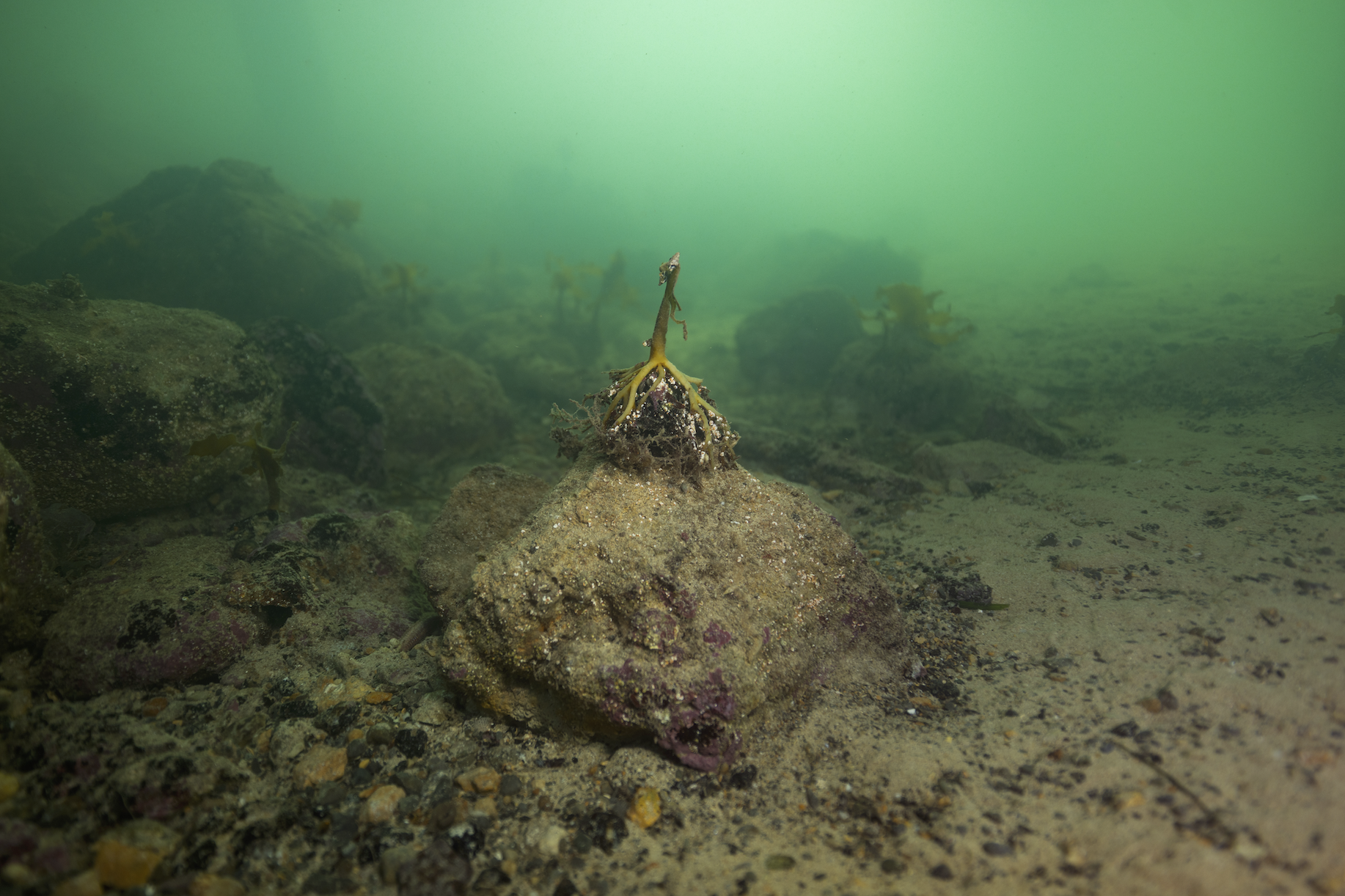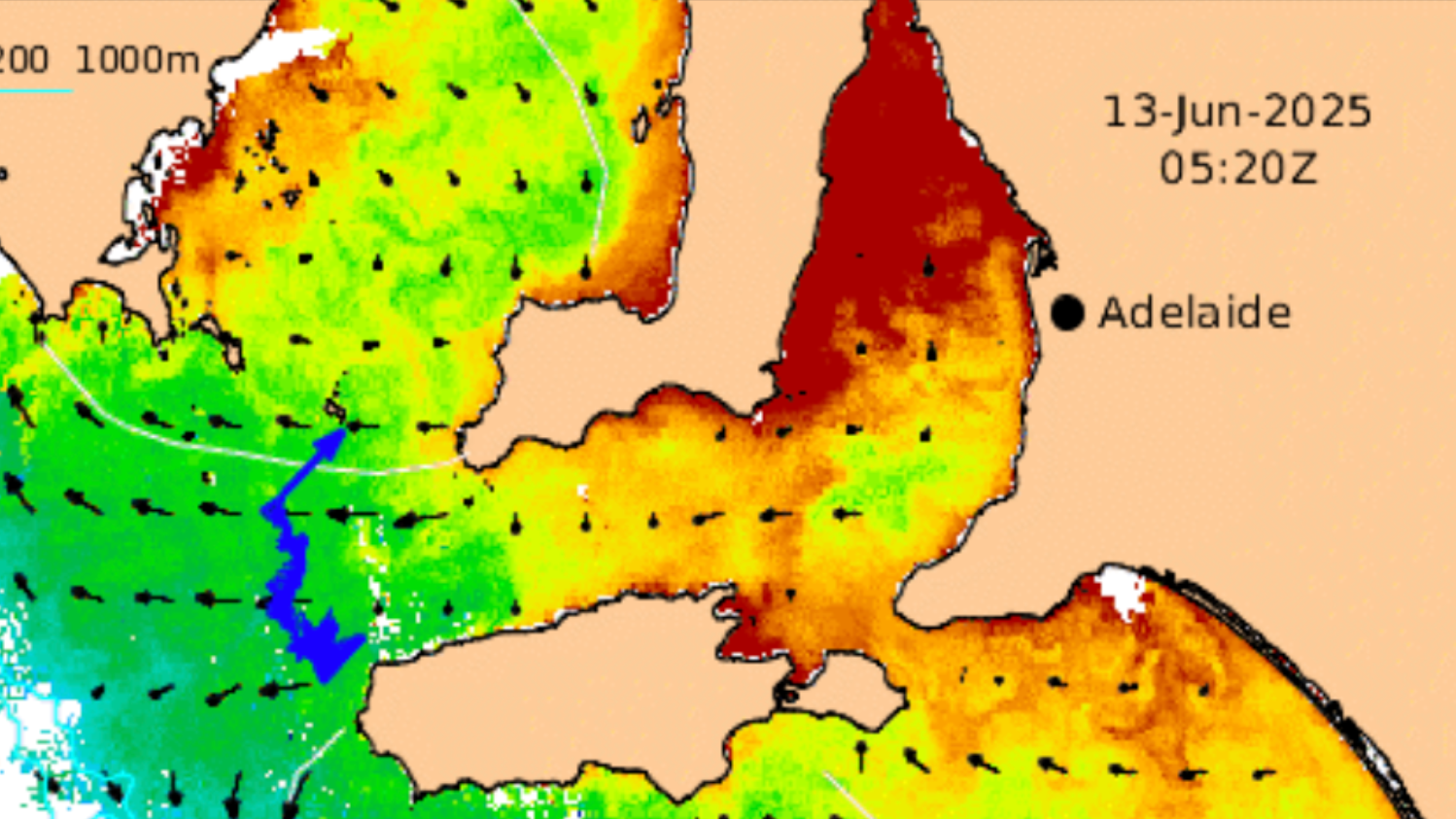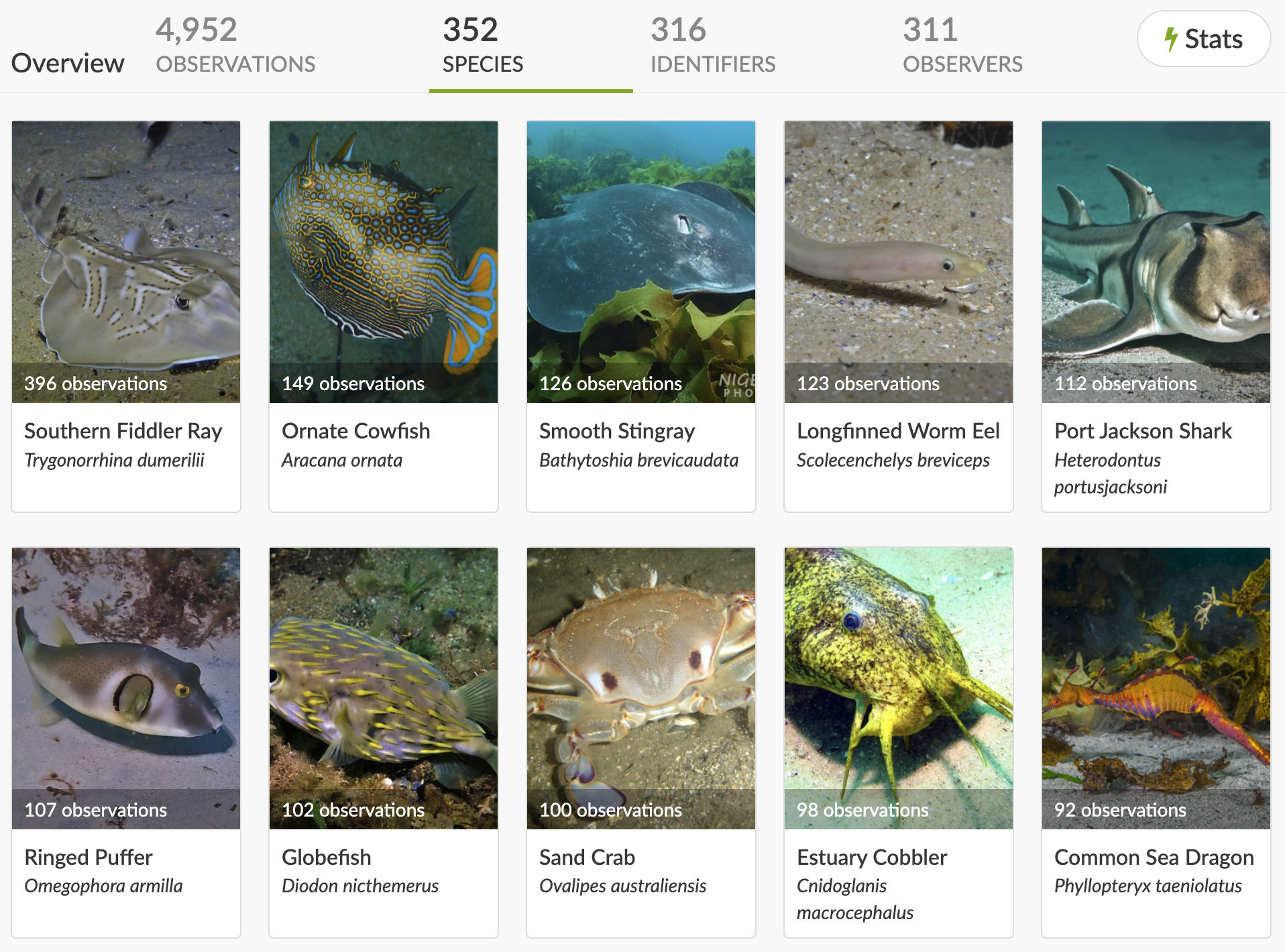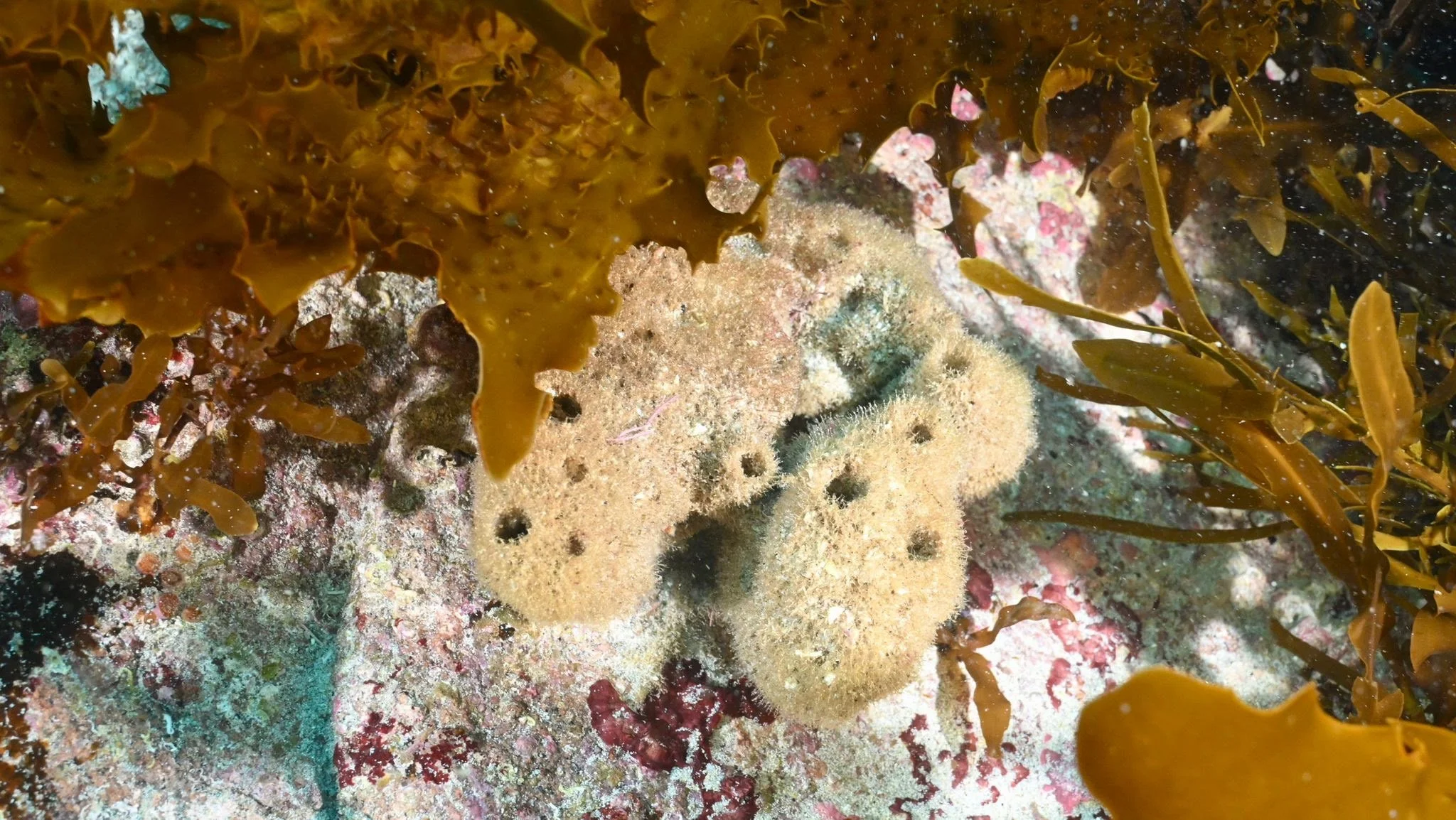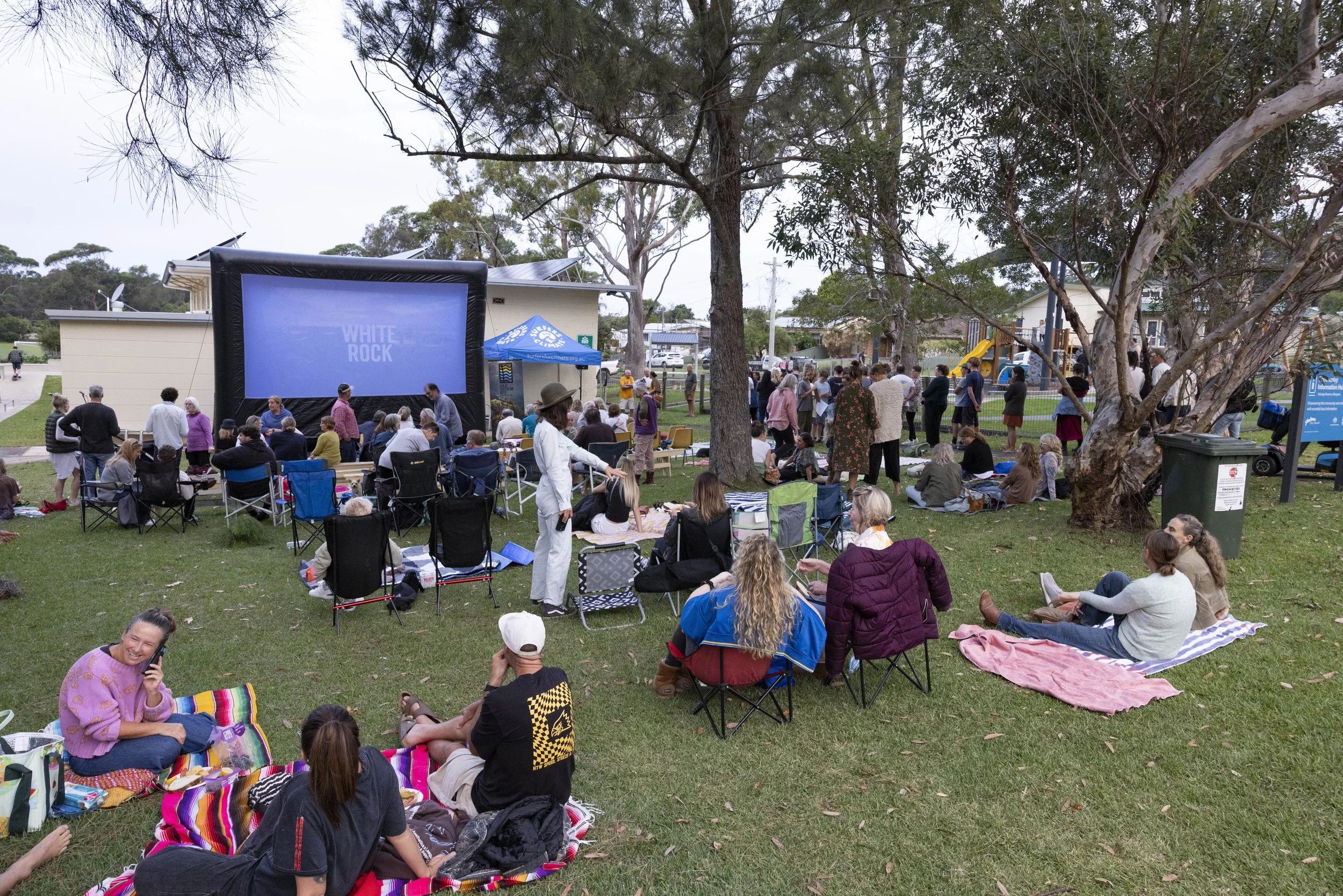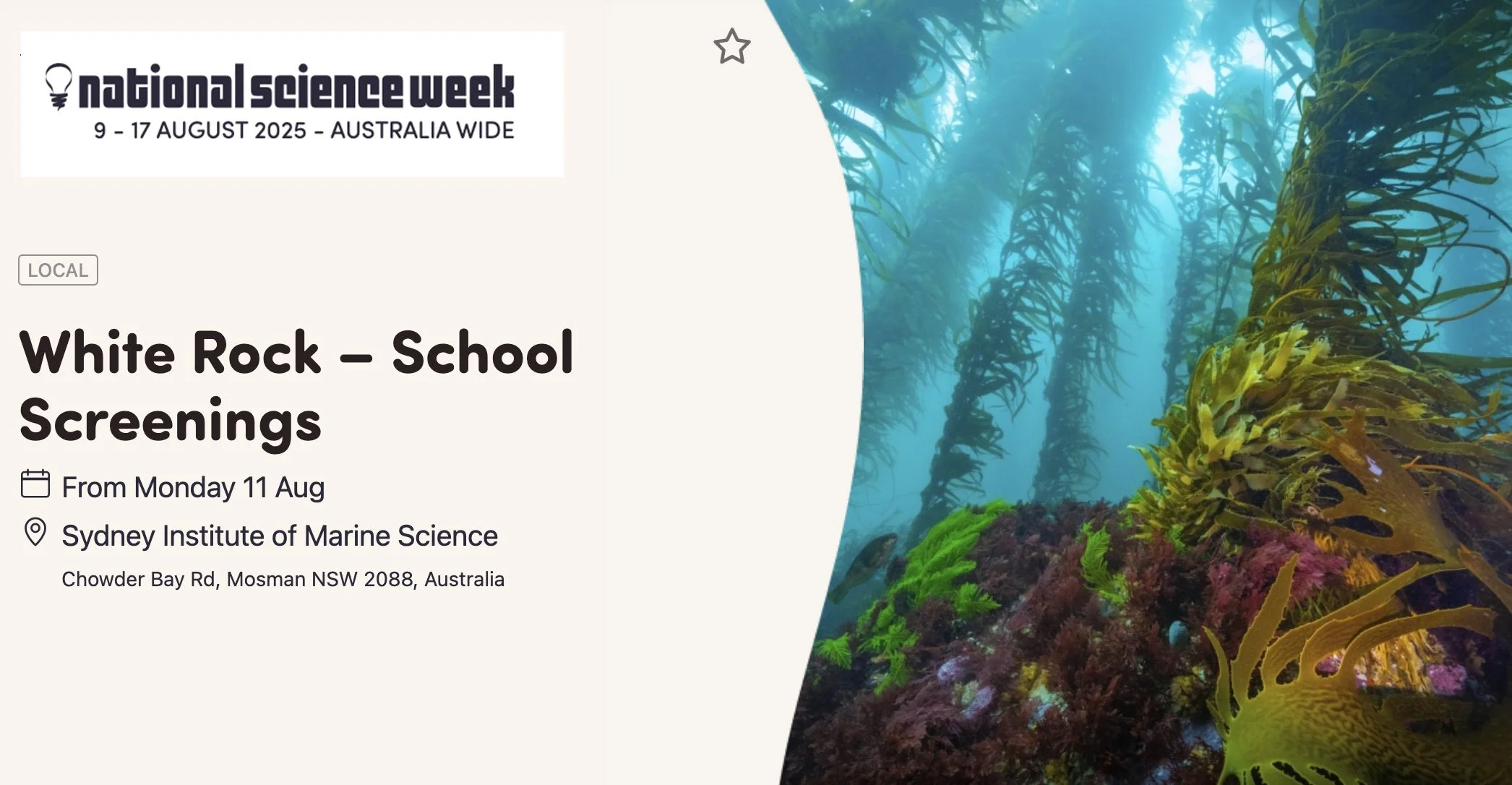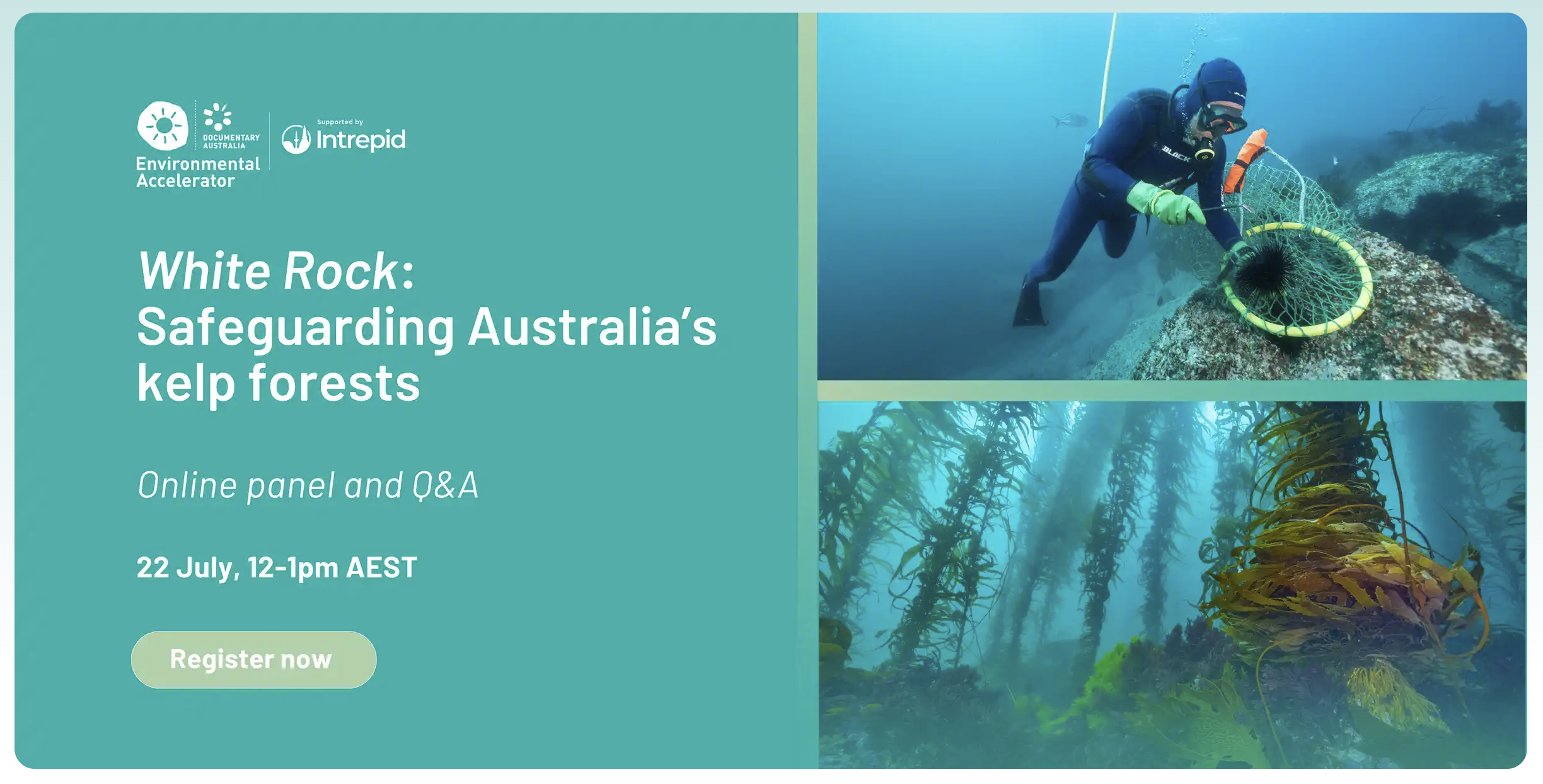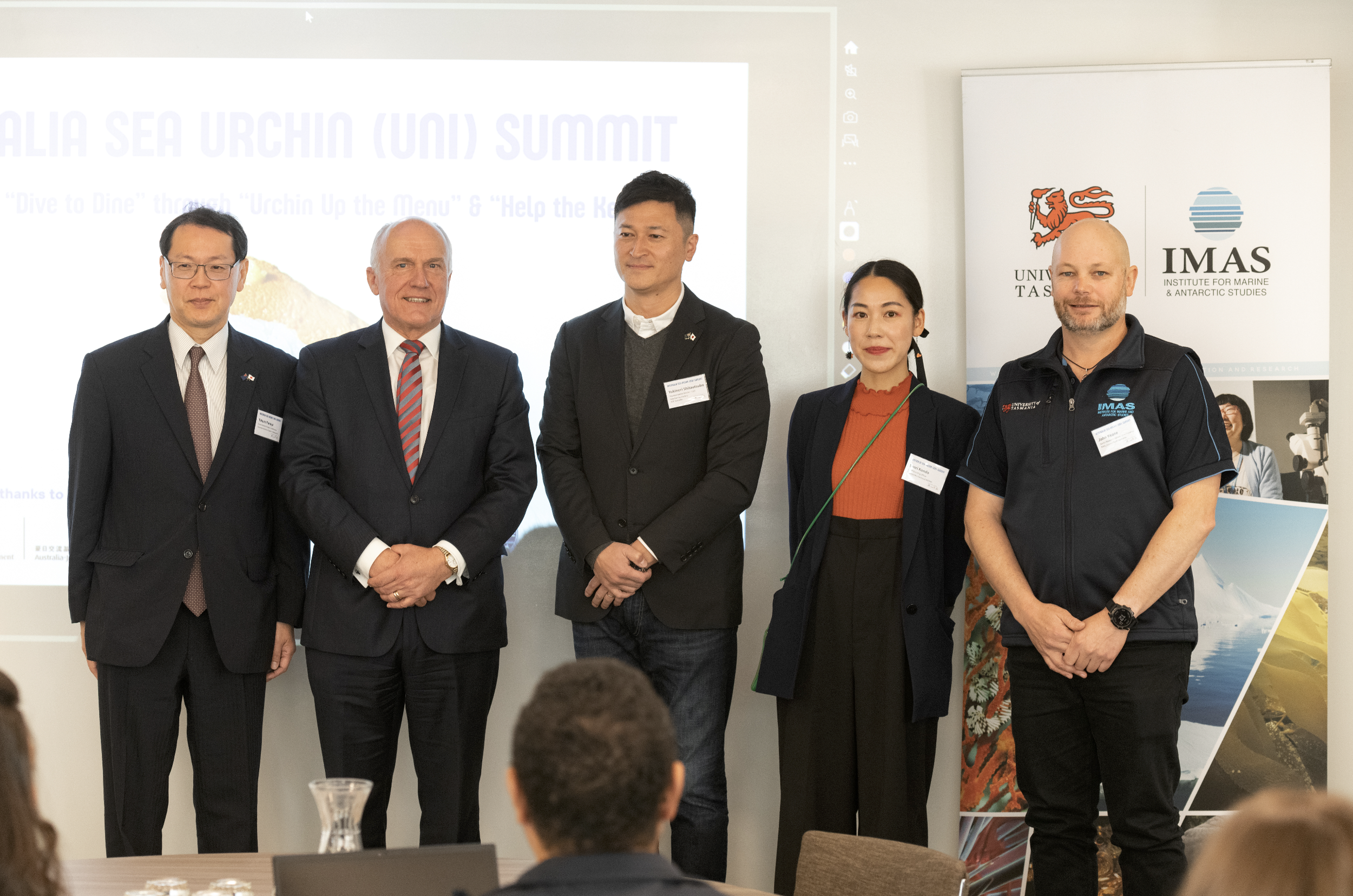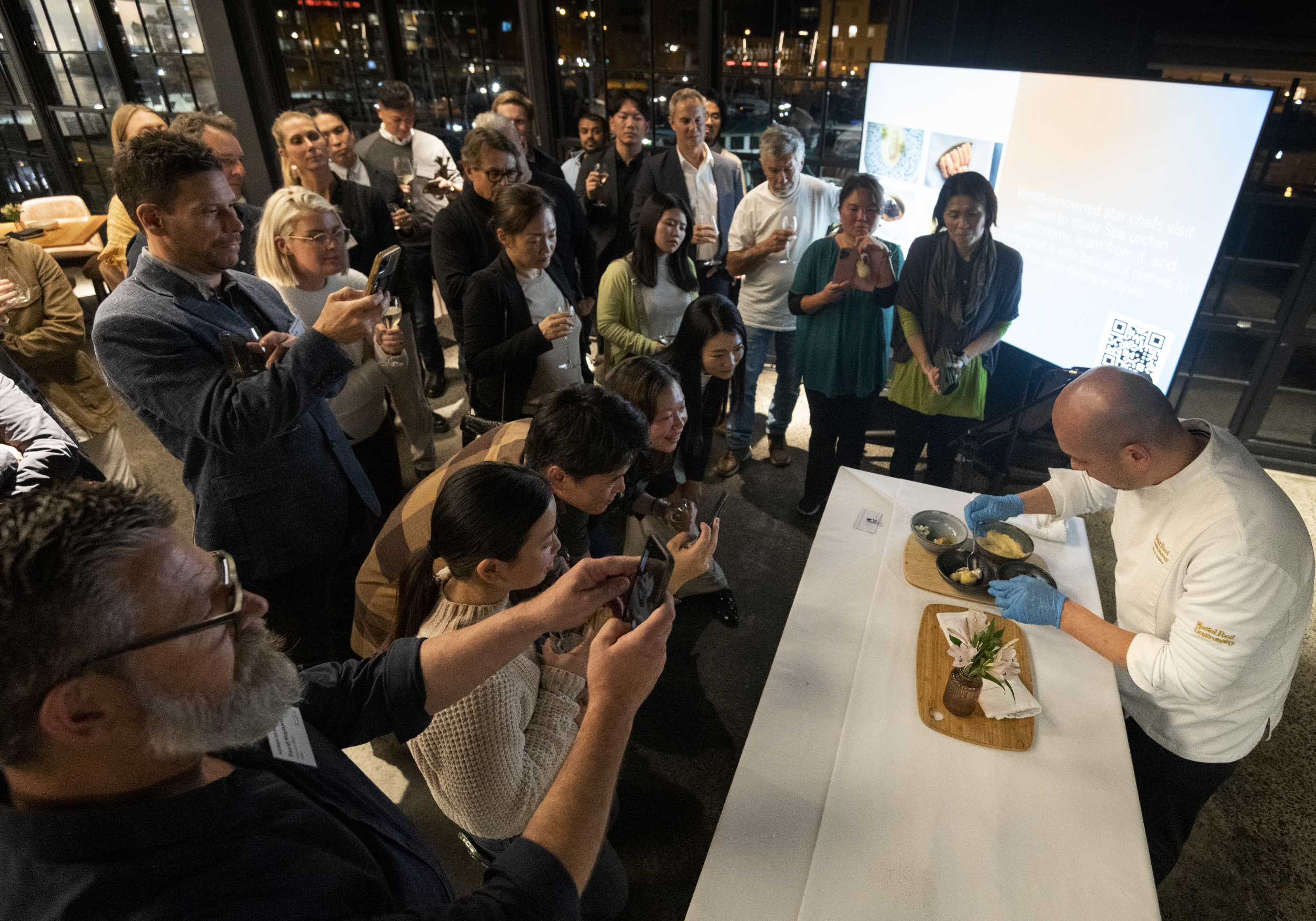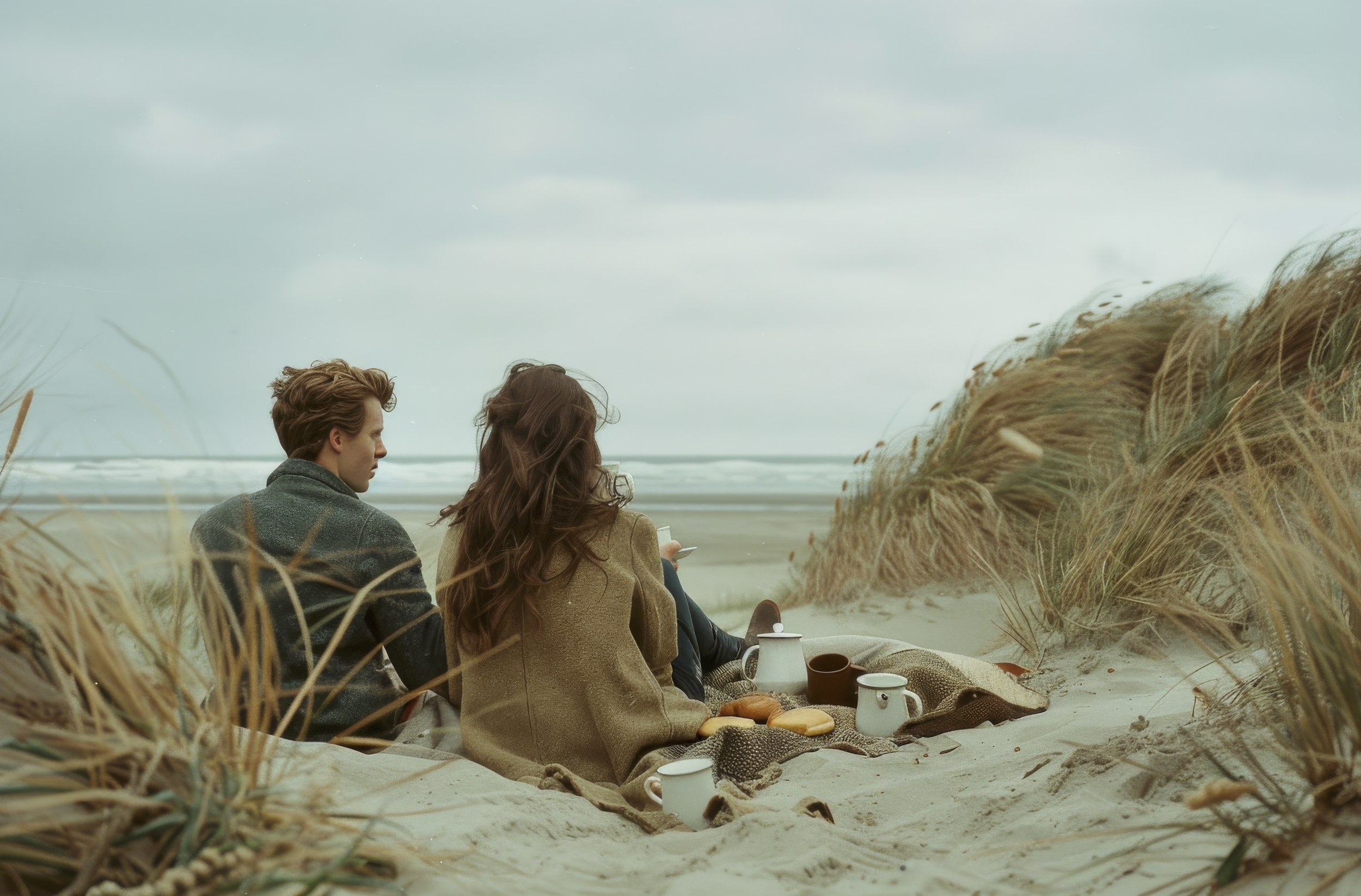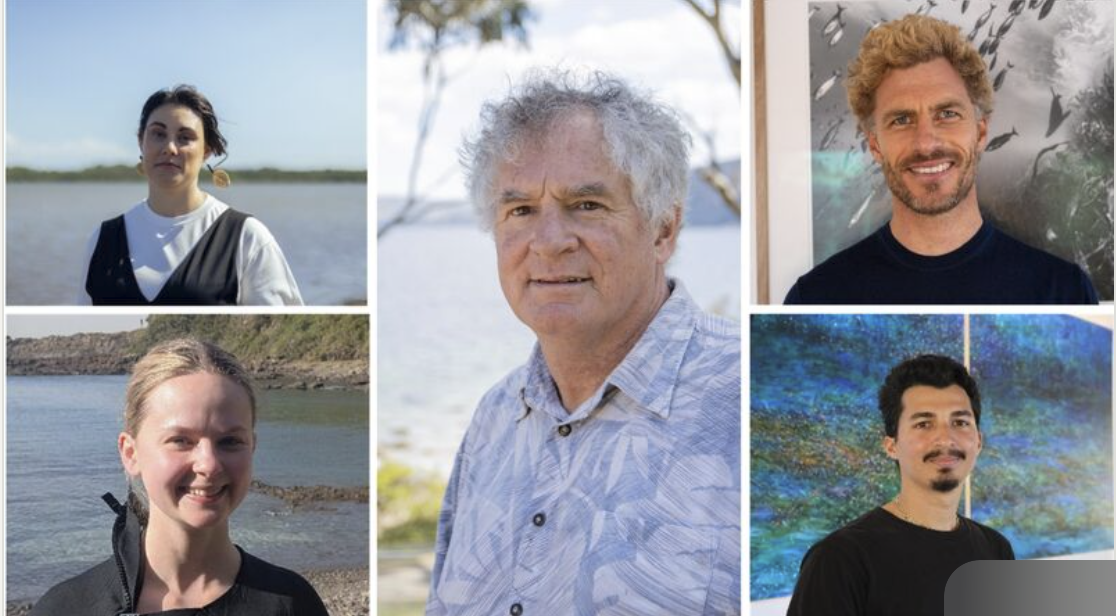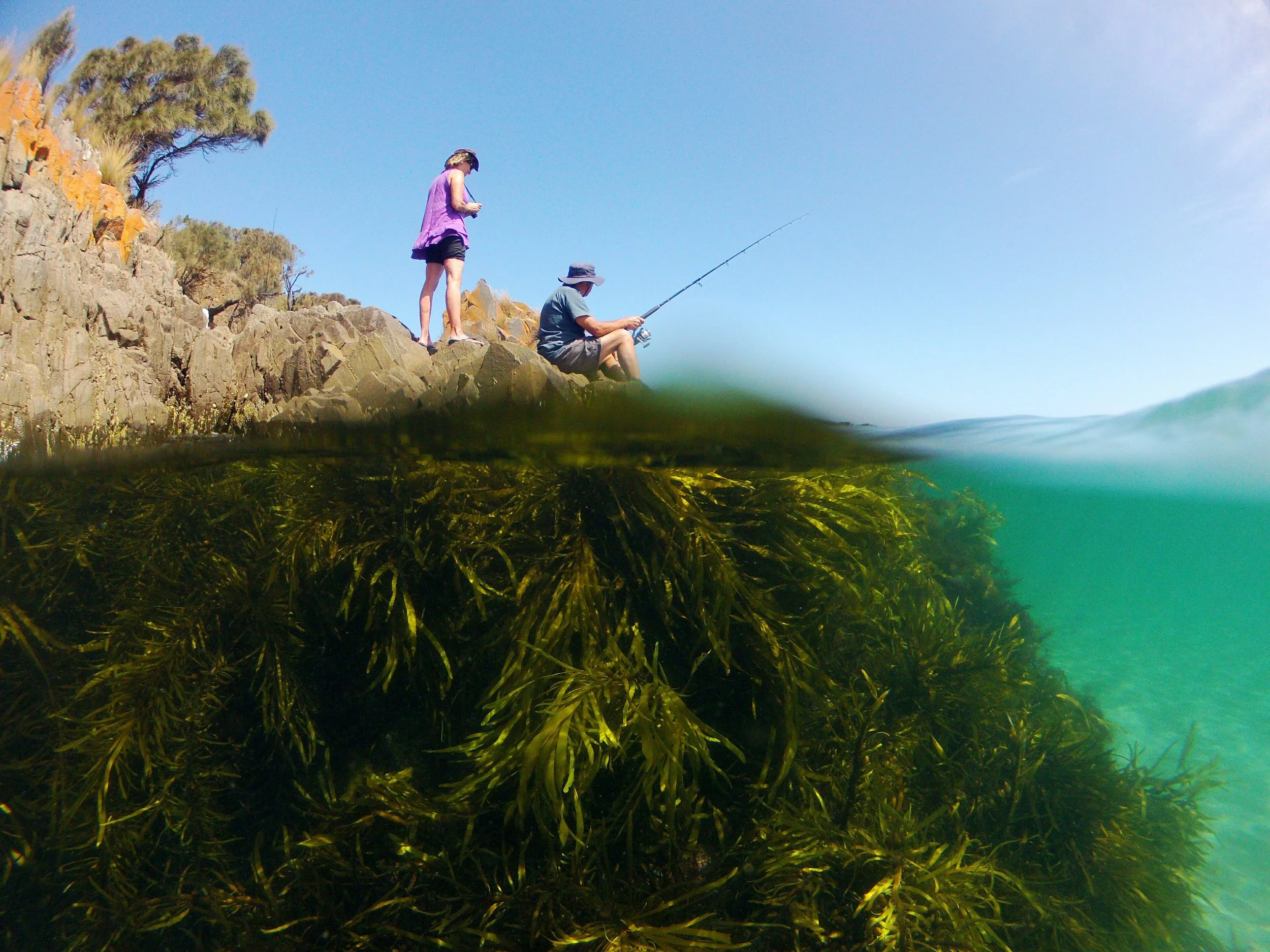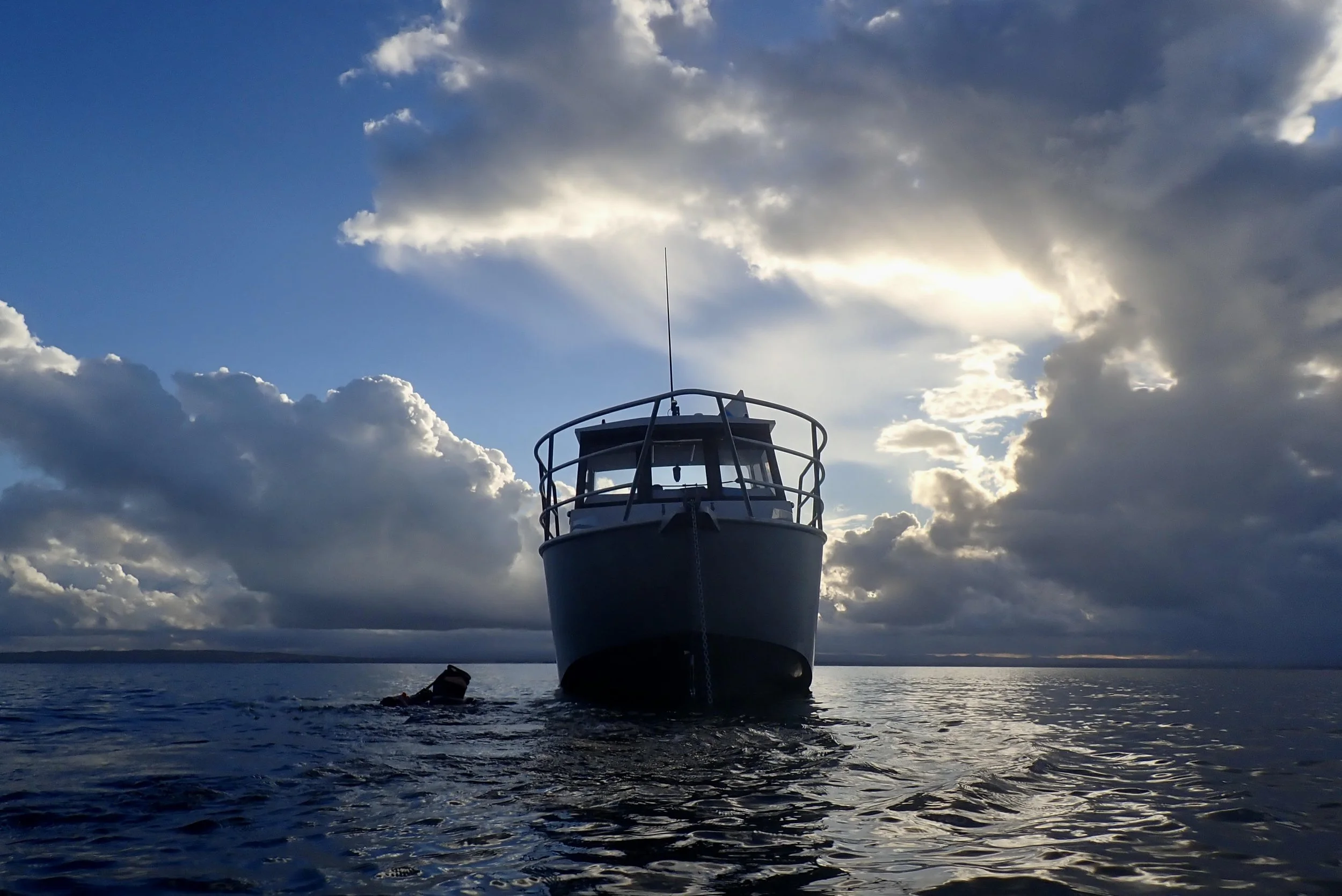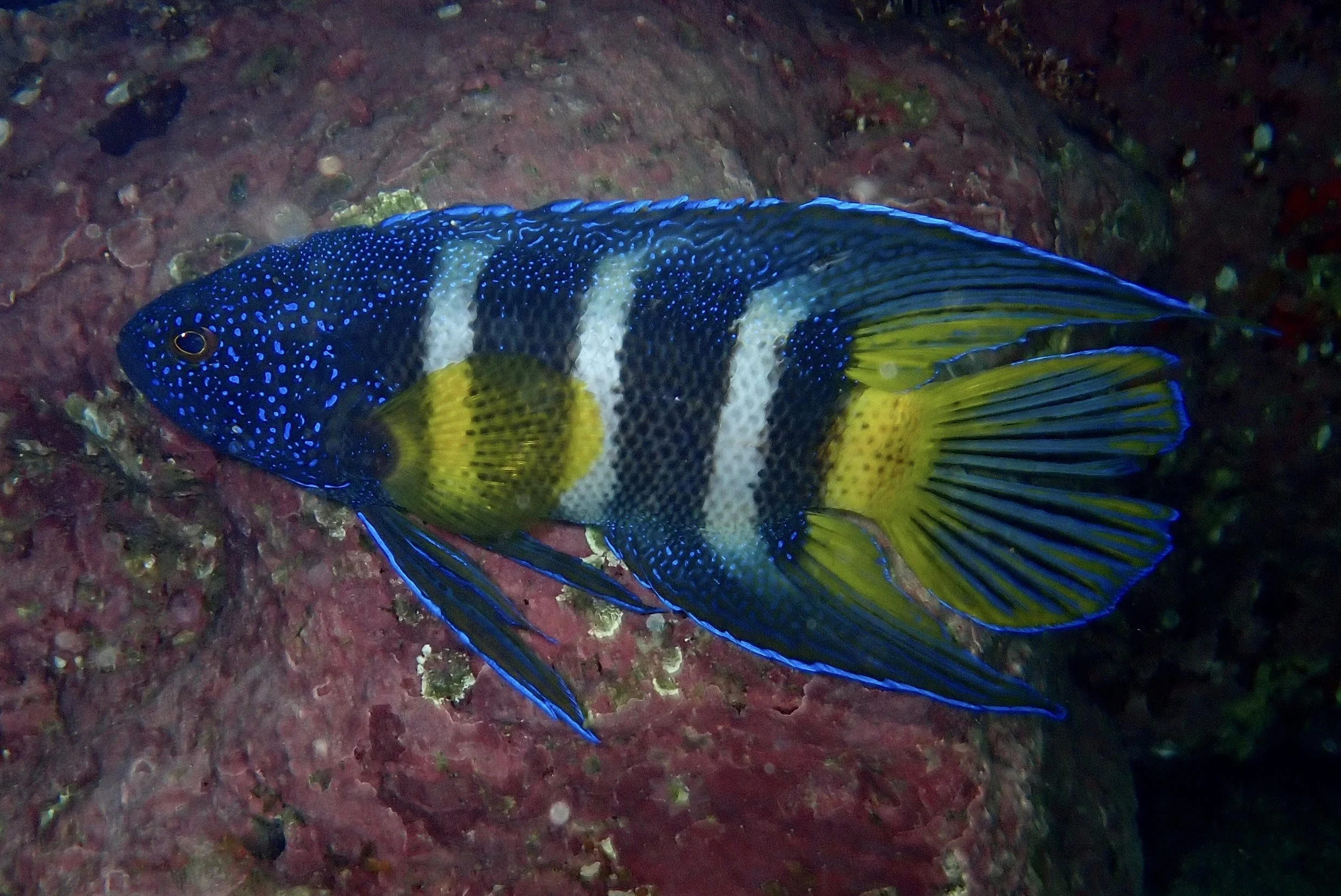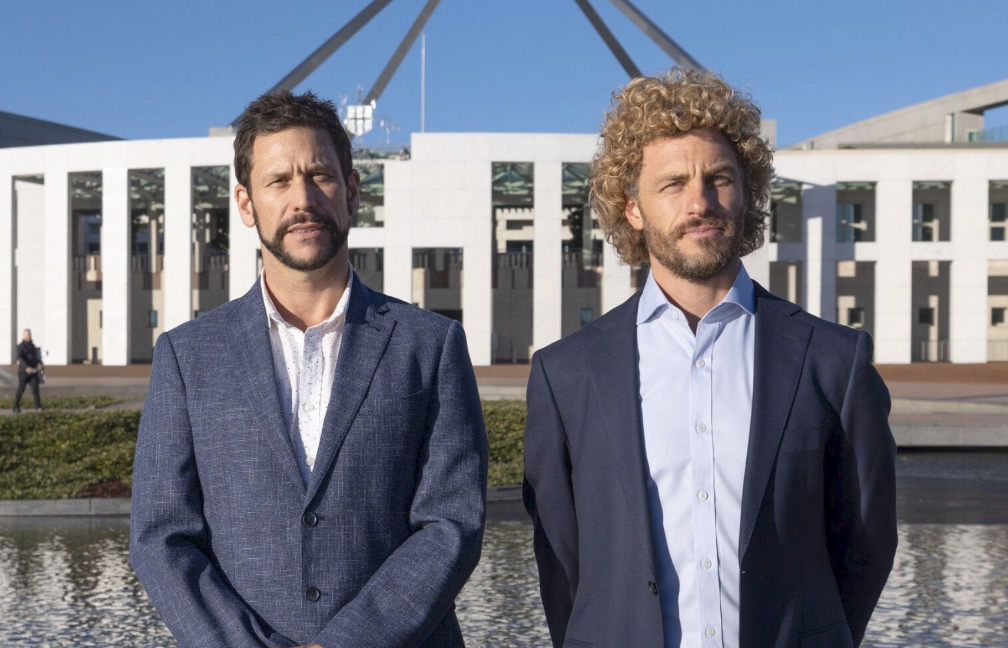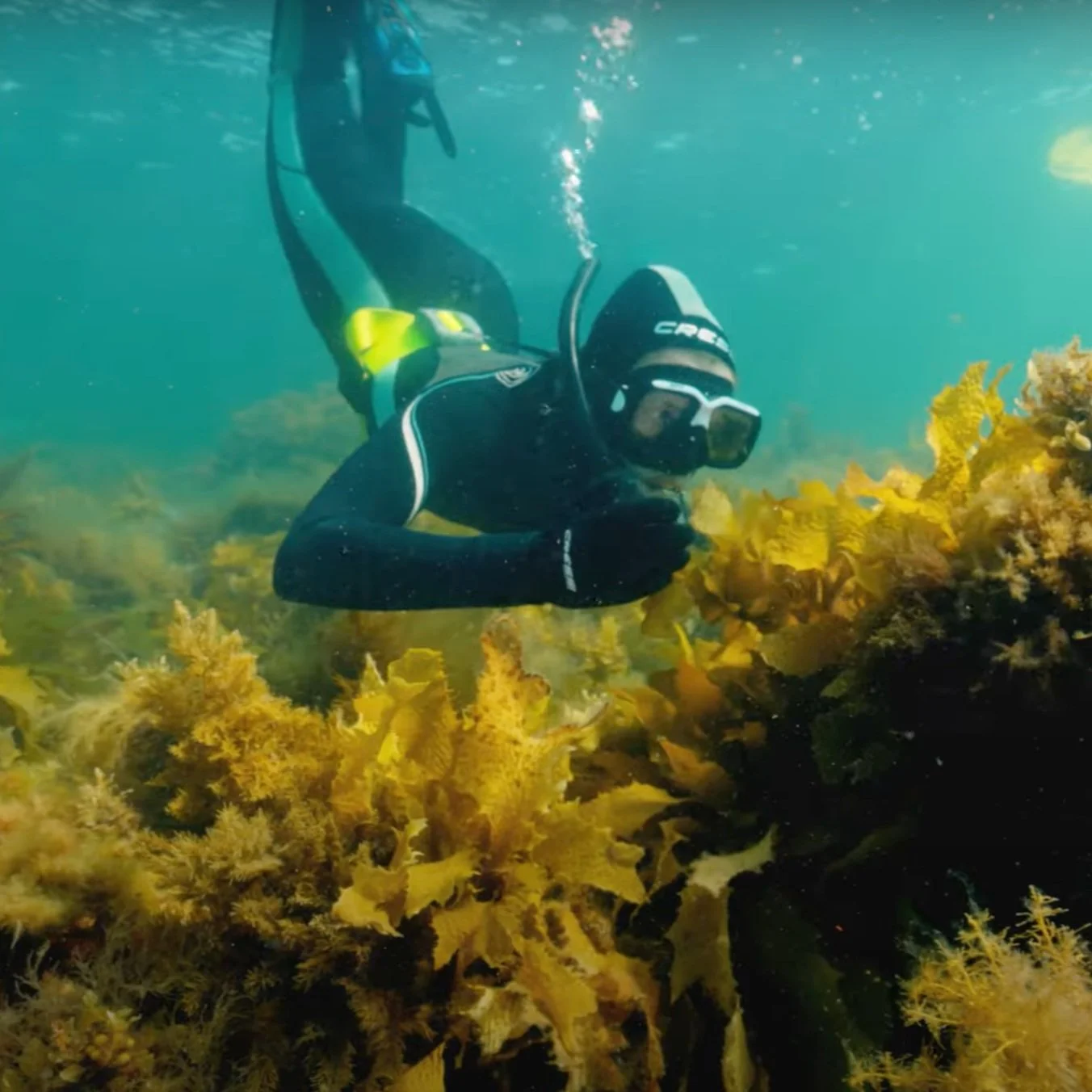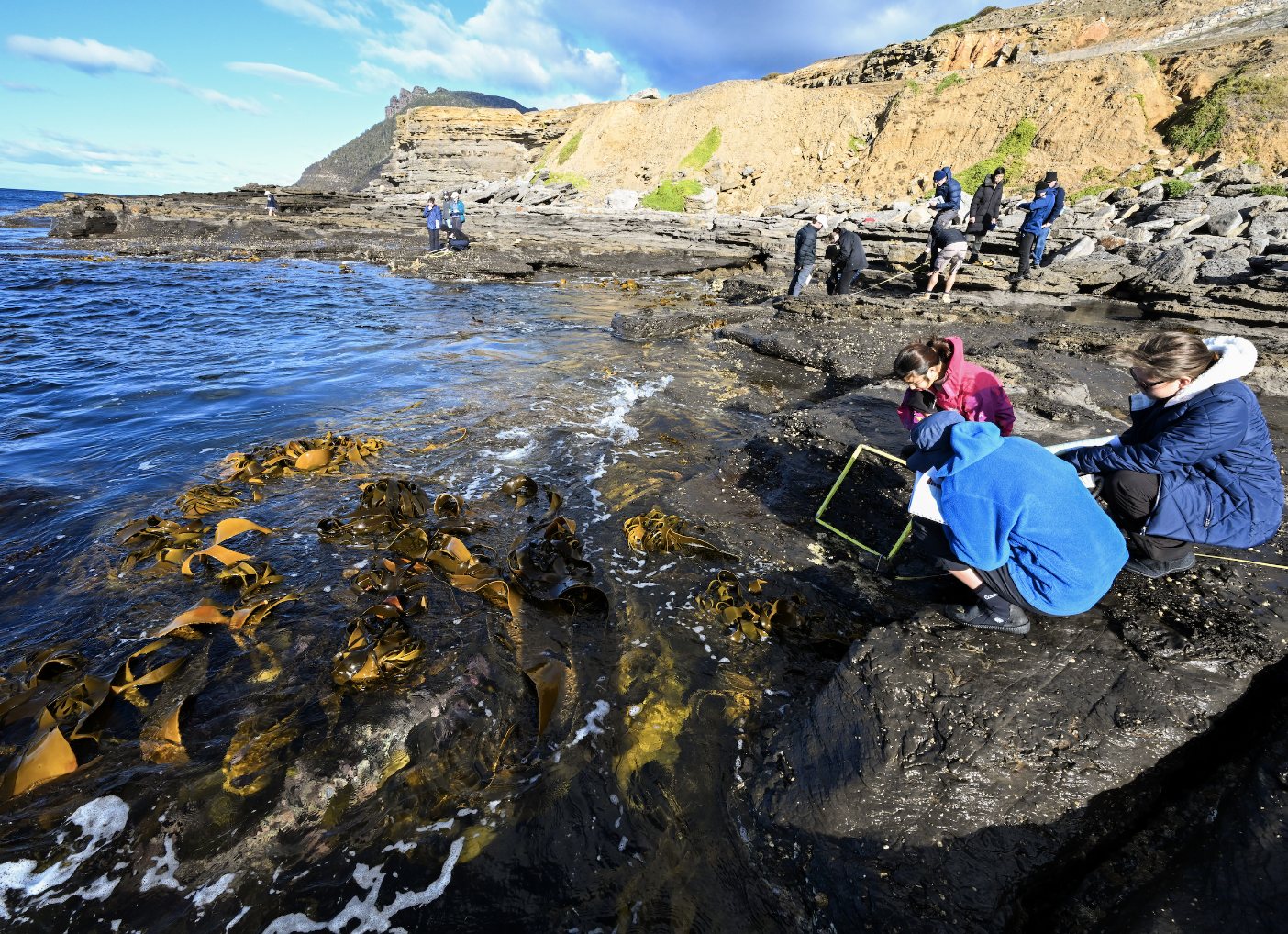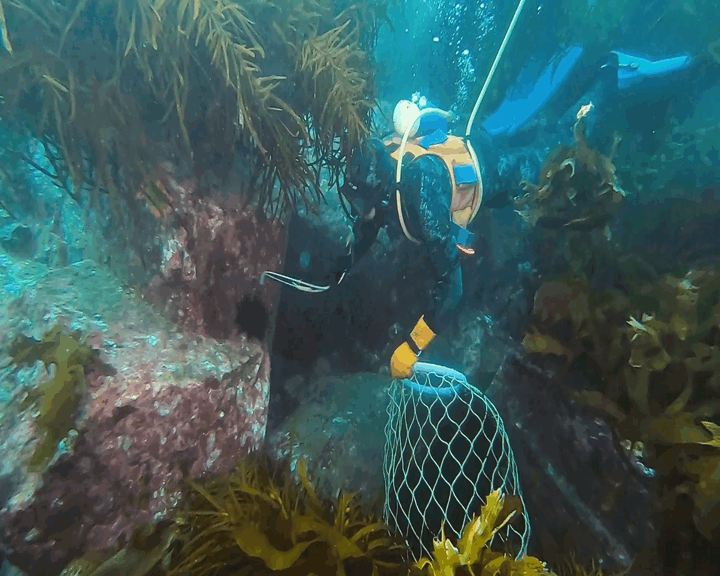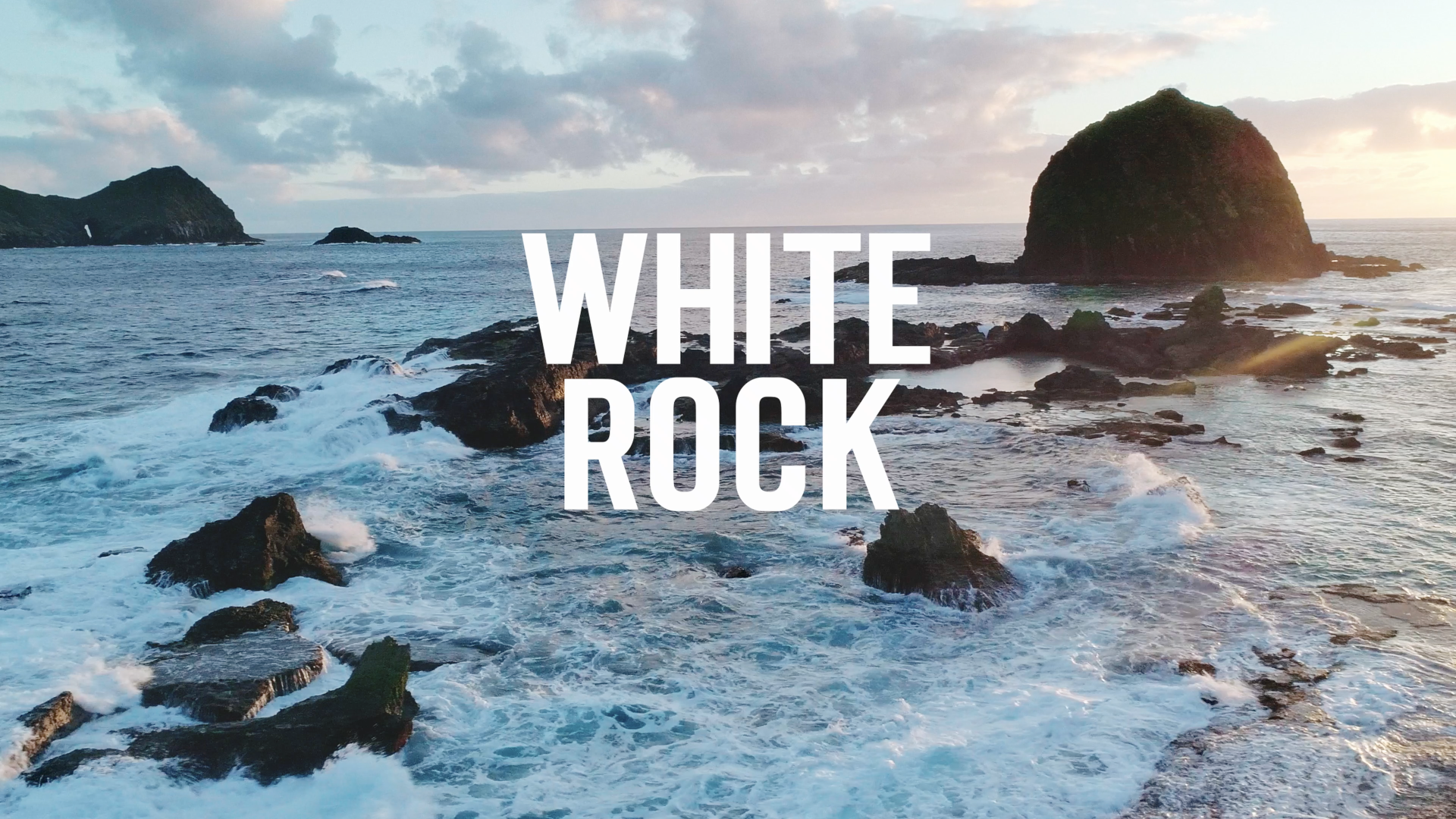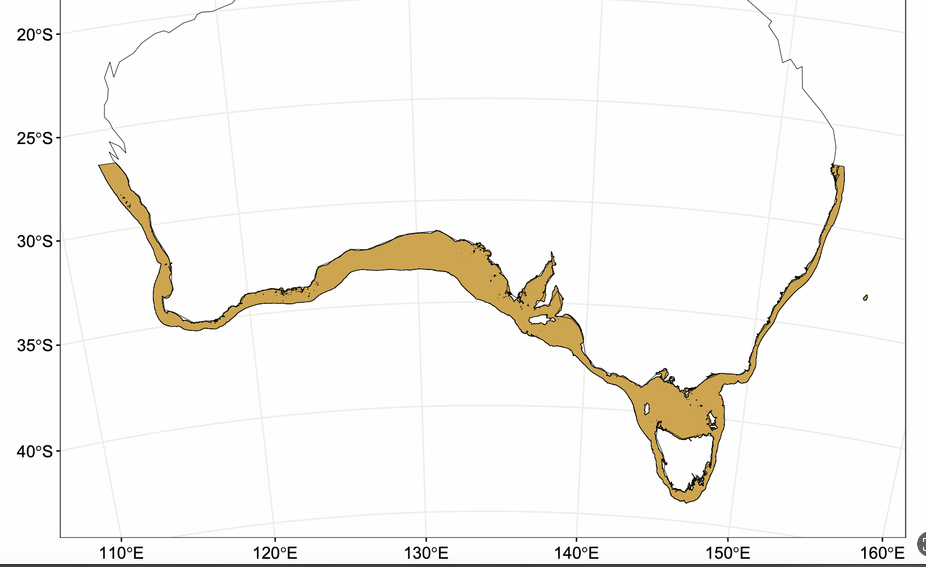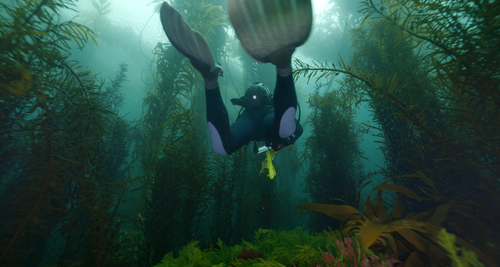
june/july 2025
As seen on the 7:30 report last night, research partners contributing to the Great Southern Reef Research Partnership have sent a formal letter to the Federal Environment Minister, urging the government to invest $40 million over ten years in a national reef monitoring program.
The letter – a follow-up to an earlier 2023 appeal that went unheeded – highlighted the urgent need for coordinated, long-term monitoring to track the impacts of marine heatwaves and other climate-driven events, support reef management across jurisdictions, and protect the reef’s critical ecological, cultural and economic value.
Deeply Scarred: A golden kelp holdfast at Edithburgh last week. Image: Stefan Andrews.
While in the 7:30 report story Minister Watt acknowledged federal investment in species restoration projects such as handfish, giant kelp and shellfish reefs -Watt's response did not address the core request for a national monitoring program. These restoration efforts are important, but without a consistent, large-scale monitoring framework in place, it is difficult to evaluate their effectiveness or understand how the broader reef system is changing over time. We are yet to receive a formal response.
What's happening with the Harmful Algae Bloom in SA?
The harmful algal bloom (HAB) impacting South Australia's marine environment has continued well into winter, with significant and ongoing mortality events recorded across coastal regions.
Chlorophyll-a concentration derived from satellite remote sensing and HF radar data. Source: IMOS
New observations in May and early June confirm the spread of Karenia-dominated blooms through Investigator Strait and into Gulf St Vincent, with mass deaths of fishes, rays, sharks, cephalopods and invertebrates reported.
While wash-ups along some regions like the Encounter Coast have eased, other areas are now seeing fresh impacts, particularly southern Yorke Peninsula and parts of Spencer Gulf, with the ecologically significant Coorong also now experiencing severe impacts.
The total reported mortalities on iNaturalist have now passed 5,000 observations across more than 350 species – with many more likely unrecorded. In this new article, we take a closer look at where and how the bloom is impacting marine life, and the growing role of citizen science in tracking its toll.
Initial Dive Surveys Shed Light on Reef Impacts
Throughout the last week, scientists from the Great Southern Reef Research Partnership in collaboration with Flinders University conducted initial underwater assessments across sites affected by the ongoing harmful algal bloom (HAB). With visibility limited and weather windows short, the team focused on several key sites across the Yorke Peninsula and Encounter Bay. Despite challenging conditions, early results are beginning to paint a sobering picture.
At many sites sessile invertebrates such as sponges, corals and ascidians have been hit hard, with widespread bleaching and signs of mortality. Pinna clams in particular appear to have experienced total die-off, with decomposing shells littering the seafloor. Mobile invertebrates like sea stars and urchins were also observed dying or recently dead. Fish life was sparse in some locations, while others showed more resilience, with higher fish numbers and diversity.
In recently surveyed sites, seaweed cover remains intact but sessile invertebrates like sponges, ascidians and corals were dead, dying or bleached. Image: Scott Bennett.
Seaweed cover in many areas remains intact, with kelp appearing relatively healthy across many reefs. Water and kelp samples are also being collected for microbial analysis to better understand the possible links between the bloom and observed impacts.
Watch: Researchers Conduct First Underwater Surveys on the HAB in SA
The team has conducted surveys at sites with existing long-term data. These sites offer vital baseline comparisons and will be revisited in early 2026 to track recovery and inform broader ecosystem management. The GSRF will continue to provide updates via our social channels.
White Rock Community Screenings
As the next phase of our White Rock impact campaign begins, we’re rolling out a series of community screenings across Australia. From Huskisson, Brisbane and Rye to Jervis Bay, Melbourne, Franklin and beyond, these events are a chance to experience the film, spark conversation, and connect with local efforts to restore the Great Southern Reef. Screenings are also planned for St Helens, Candelo, and more. You can explore all upcoming screening locations and ticket details here.
Want to host a screening in your community?
NSW School Screenings
We also have a special run of NSW school group screenings hosted by The Harbour School Sydney and Sydney Institute of Marine Science.
Help Us Reach More
& Drive Change
We’re incredibly grateful to everyone who’s backed the campaign so far. As we head into this next chapter, your support remains vital - helping us expand our reach through local screenings, school engagement, workshops, and educational resource development. It also strengthens our ongoing advocacy for the $55 million Centro Business Plan. All donations over $2 via the link below are tax-deductible and directly fund this vital work.
Online Panel + Q&A
Keen to learn more about the White Rock doco and our impact campaign? Join the GSRF's Dr. Scott Bennett and Stefan Andrews at 12pm on Tuesday 22 July for a free lunchtime conversation hosted by Documentary Australia.
World Ocean Day Beer Collab
In partnership with Yakima Chief Hops, Deep South Brewing and Moo Brew, we have collaborated on a special beer that will raise funds for the GSRF’s conservation efforts and spotlight the importance of protecting marine biodiversity.
Every element of this beer has been thoroughly considered. From the finished product to its environmental impact, the collaborators have used advanced hop products, in-house cultured yeast, 100% recyclable products alongside a strategy to reduce the carbon footprint of this beer and all aimed at making a positive environmental difference. [learn more]
Australia-Japan UNI Summit
The GSRF joined a diverse group of experts, leaders, and innovators at the 2025 Australia-Japan UNI Summit in Hobart to tackle the growing sea urchin crisis and its impact on kelp forests.
The event brought together political figures, First Nations leaders, scientists, seafood producers, and behavioural experts from both countries to explore collaborative solutions. GSRF’s film White Rock featured prominently in discussions.
“Sea urchins are no longer just a threat—they're a test case for how Australia and Japan can lead in regenerative marine innovation.”
On day two, GSRF’s Dr Emma Church shared insights from the White Rock campaign, highlighting the power of storytelling to drive public and philanthropic support for kelp restoration. Summit outcomes included a push for national uni grading, new culinary partnerships, marketing campaigns, and a proposed follow-up summit in Japan later this year.
What 3,000 Aussies Told Us
Ever wondered how other Australians feel about our southern beaches, rocky shores, and coastal waters? Emma Church and her socio-ecology advisory group asked over 3,000 people from WA to NSW and their answers paint a picture of deep connection and untapped potential.
86% agree the coastline of the Great Southern Reef is outstandingly beautiful, but the connections run deeper. Among those who visit:
81% say it helps them unwind and de-stress
79% say it makes them feel better physically
Here's the encouraging part: even though coastal protection participation is still growing, around half are willing to start. Find out more about the results in our upcoming social media posts.
National Ocean Literacy Push
A new paper has outlined a national roadmap to boost ocean literacy in Australia, calling for stronger connections between people and the sea to support sustainable decision-making.
Led by researchers from IMAS, CMS and Deakin University, the study highlights the urgent need to embed ocean understanding across education, policy, and community engagement. With Australia’s oceans facing increasing pressure, the authors are urging the creation of a national ocean literacy strategy and a dedicated coalition to help turn knowledge into action for ocean sustainability.
"Improving ocean literacy means connecting people to the ocean and supporting the choices and actions needed to secure a sustainable future for Australia’s oceans”
— Dr. Rachel Kelly
Cuttlefish are Back! New School Lesson
Giant cuttlefish have once again arrived for their annual breeding aggregation in South Australia. To celebrate, we've launched a new interactive case-study lesson series. In the student-led course suitable for year 6 and up, students will discover why the area is such an important breeding ground, and how species like cuttlefish can experience dramatic population changes over time.
Stay tuned for more updates on this year's aggregation on our social channels.
A powerful new commentary in Nature Ecology & Evolution challenges ecologists to step up in the face of accelerating biodiversity loss and climate disruption.
Six Actions for Ecologists
Coauthor of the paper Professor Gretta Pecl Image: Nikki Davis-Jones
“As ecologists, we often see clearly what needs to change in our relationship with nature. But with ecosystems declining so rapidly, we also need to reflect on how we operate as a field and how we can better push for the uptake of science in decision-making.” – Professor Gretta Pecl
Co-authored by a global team of leading researchers, including Professor Gretta Pecl, the paper outlines six urgent actions ecologists can take to become more effective agents of change. These include:
PUT BIODIVERSITY FRONT AND CENTRE
Make saving nature the top priority in research, teaching, and how institutions operate.
FOCUS ON SOLUTIONS, NOT JUST PROBLEMS
Imagine and explore better futures where people and nature thrive together and figure out how we get there.
SPEAK TRUTH TO POWER
Stand up for science and keep pushing for honest, direct communication with decision-makers. Even when it's hard.
DON’T SHY AWAY FROM POLITICS
Recognise that research impacts power and policy. It's time to stop pretending science sits on the sidelines.
LEAD BY EXAMPLE
Practice what we preach. From reducing the footprint of our work to engaging with schools and communities.
TACKLE THE ROOTS OF INEQUALITY
Support diverse voices and shift away from extractive models. Work with Indigenous and local knowledge holders on equal terms.
AMSA Award recipients
Each year the Australian Marine Sciences Association proudly presents awards to individuals recognising outstanding contributions to marine science in Australia.
We would like to send out a huge congratulations to all the AMSA Award recipients of 2025, with a special shoutout to:
-
This award recognises excellence in marine research and is presented to a scientist who has made an outstanding contribution to marine research in Australia.
-
This award is presented to an early or mid-career scientist in recognition of their outstanding research and academic achievements in marine science, including the translation of their research for engagement outside of academia and mentoring of other young scientists.
Building Resilience in the Face of Climate Change
This collaboration isn’t just about creating a product; it’s about connecting the dots between land and sea in a shared narrative of environmental responsibility.
Sea Change Australia is a new national initiative bringing together fishers, aquaculture producers, managers, researchers, and industry leaders to exchange knowledge and co-develop climate-resilient options for strong and healthy fisheries and aquaculture sectors in Australia.
Interested to learn more? Explore their project and help them build a strong network!
Jervis Bay Snapshot of Marine Health and Biodiversity
In May the GSR Research Partnership continued its long-term monitoring program, this time within the Jervis Bay Marine Park. Scientists from the NSW Department of Primary Industries hosted visiting researchers from IMAS, together conducting surveys of biodiversity and kelp abundance at 22 sites around the bay.
These monitoring efforts provide crucial data on the condition of the marine park and the impact of stressors like ocean warming, and a valuable opportunity for collaboration between research teams. This represents the 14th long-term monitoring assessment of the Jervis Bay Marine Park over the 30 years since its creation.
Despite some poor weather on the surface, conditions were mostly good underwater. The visiting team was impressed by the underwater scenery and the diversity of habitats within the bay, ranging from complex rock walls to kelp forests, seagrass meadows, and sponge gardens. They were also pleased to encounter a number of the GSR’s most iconic species, including blue grouper, grey nurse sharks, and the eastern blue devil fish.
GSR LOCAL HERO
Marine scientist and adventurer Dom Baume hit the road for a 5-week solo ride from Brisbane to Hobart to raise funds and awareness for the Great Southern Reef Foundation.
After a year working at sea in Antarctic waters, Dom hit the road in search of a new challenge—facing brutal hills, wild weather, and the simple joy of life on two wheels. Along the way, he joined us at the Narooma screening of White Rock, sharing stories from the saddle and his passion for Australia’s temperate reefs. If you're inspired by Dom’s effort, it’s not too late to show your support, donate to the GSRF today.
more gsr news
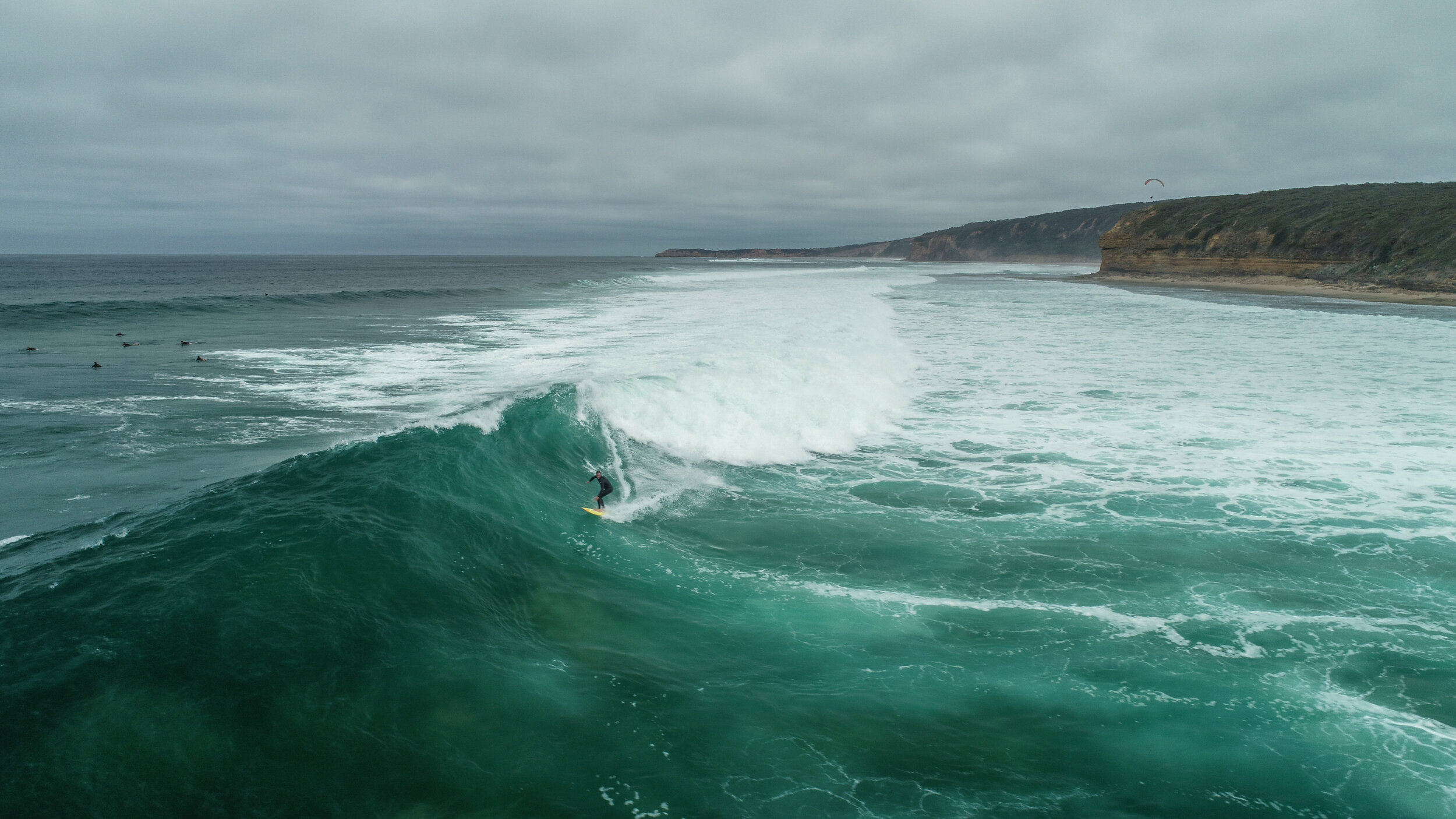
you may also like:

